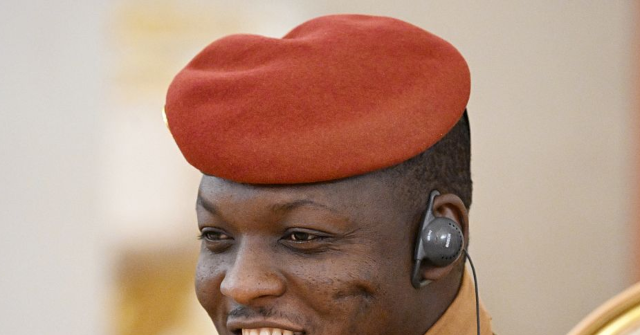The parliament of Burkina Faso passed a law on Monday that criminalizes “homosexual practices,” with prison sentences of two to five years plus hefty fines. Burkina Faso is the 33rd out of 54 African states to ban homosexuality.
“If a person is a perpetrator of homosexual or similar practices, all the bizarre behavior, they will go before the judge,” warned Justice Minister Edasso Rodrigue Bayala in a nationwide television broadcast.
Bayala said the new law would take effect immediately. He said foreign nationals convicted of violating the code could expect to be deported.
The ban on homosexuality was part of a “Persons and Family Code” that was praised by Amnesty International (AI) for some of its other provisions, such as raising the minimum age for marriage to 18 for both boys and girls, and requiring the consent of both parties for marriage.
“This move protects children from early and forced marriage, a deeply harmful practice that has long violated their rights and hindered their education, health, and well-being. We also welcome provisions eliminating gender discrimination in inheritance rights. These provisions represent a significant milestone in the country’s efforts to safeguard children’s and women’s rights,” AI said.
“However, we are alarmed and deeply concerned by the criminalization of same-sex relations between adults. This does nothing but create discrimination and violates the right to equality before the law. It is at odds with the African Charter on Human and Peoples’ Rights and the International Covenant on Civil and Political Rights, both ratified by Burkina Faso,” the statement continued.
AI and other critics demanded President Ibrahim Traoré pull the Persons and Family Code back into the legislature so the homosexual ban could be removed. That seems unlikely, as the current version of the code was adopted unanimously by the Transitional Legislative Assembly.
Traoré, 37, seized power in a 2022 coup and became a popular champion of “Pan-Africanism.” His junta has cut ties with formal colonial power France and aligned itself with Russia, much like neighboring junta regimes in Mali and Niger.
After the three coup states withdrew from the Economic Community of West African States (ECOWAS), they formed a group called the Alliance of Sahel States (AES) that was specifically devoted to rejecting influence from both other African nations and the Western world.
Fellow AES member Mali passed a homosexuality ban in October 2024 that closely resembles the one adopted by Burkina Faso on Monday. Traoré’s military government approved a draft version of the “family code,” including its ban on homosexuality, over a year ago.
Neither Traore nor his 71 legislators are elected, and they are not planning to hold elections any time soon. Traoré’s “transitional” junta government amended its charter in May 2024 to remain in power until at least July 2029.
Read the full article here


